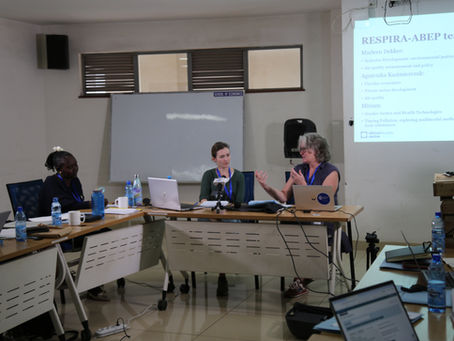


Enhancing Capacity for Climate Change Resilience in Nakuru, Kenya through AI-based Air Quality Monitoring
Financed by

Partners







The RESPIRA Air Quality Monitoring (RESPIRA-AQM) project aims to build Nakuru’s resilience against the impacts of air pollution and climate change by integrating advanced forecasting technology with community-driven environmental monitoring.
Our approach is rooted in strong partnerships that unite the expertise of local and international specialists. Our team comprises data scientists, anthropologists, and citizen science experts from KU Leuven in Belgium, working hand-in-hand with environmental scientists from Kenya’s Egerton University.
We also collaborate extensively with Kenyan organizations such as Sensors.Africa, the Kenya Meteorological Department, the Stockholm Environmental Institute and Belgian professionals specializing in community engagement and data visualization.
The RESPIRA-AQM project focuses on three strategic objectives:
(I) Strengthening Local Expertise:
We enhance the technical capabilities of Nakuru’s Meteorological Department by incorporating advanced artificial intelligence (AI) and data science methods into air pollution monitoring and forecasting. This empowers them to predict, analyze, and respond to air quality issues effectively.
(II) Using Local Data to Inform Policy:
In close partnership with Nakuru County government and city stakeholders, we provide accurate, locally generated data to shape effective climate policies. The project emphasizes evidence-based policy making to ensure that air quality and climate resilience strategies directly reflect local conditions, challenges, and priorities.
(III) Harnessing AI and Community Involvement:
We fully leverage AI-driven tools and citizen science approaches to devise practical solutions to Nakuru’s climate-related air pollution challenges. Our citizen-driven platform, AngaWatch, enables residents to actively report and track pollution incidents. This amplifies local engagement and fosters public awareness about the tangible impacts of climate change and air pollution on health and community well-being.
The project is funded by the Government of Flanders through the Flanders International Climate Action Programme.

FICAP info
Project Leads
This project is led by a team of experts from KU Leuven, Belgium and Egerton University in Nakuru, Kenya


























